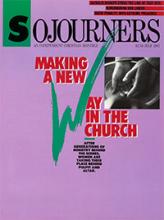Ben Linder is dead. The 27-year-old engineer from Portland, Oregon, built dams in rural Nicaragua and liked to dress up like a clown for the kids. What better thing is there to do in a poverty-stricken war zone than trying to improve the lives of peasants and making children laugh?
With so many U.S. citizens now in Nicaragua, it was inevitable that someday the first would be killed. And every one who has ever gone to Nicaragua knew that and accepted the risk. Anyone who tries to stop a war or heal its wounds risks becoming one of its casualties.
What every U.S. citizen working for peace in Nicaragua also knows is that the death of Benjamin Linder was intended to send a signal--to them. Ben was targeted, just as he and others like him were warned they would be. Of course, the contras and the U.S. State Department deny that.
U.S. officials suggested Ben was caught in a crossfire between Nicaraguan government forces and the contras. I couldn't help recalling Alexander Haig's suggestion that the four religious women raped and killed in El Salvador in 1980 might have provoked the attack by running a roadblock. At least we can say that the U.S. government's treatment of the truth about Central America has been consistent.
I traveled in the Nicaraguan war zones as a member of the first Witness for Peace delegation in December 1984. Frequently our daily plans and travel routes had to be altered because of contra attacks. We could often hear mortar fire nearby and were sometimes stranded in unexpected places or encountered roads that had been closed because of the fighting.
On our return trip to Managua from the northern frontier town of Jalapa, our bus driver raced to get off a road that was expected to be shelled by the contras at any moment. That same road was closed one hour later because of a contra attack.
Read the Full Article

